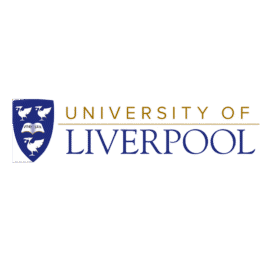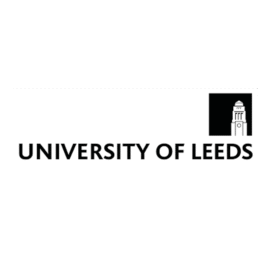
PhD-Communication and Media
PhD @University of Liverpool posted 3 weeks ago in Economics , in Social Science Shortlist Email JobJob Detail
-
Experience No Preference
-
Qualifications Master’s
Job Description
Overview
From political communication to discourse and culture, heritage industries to media and entertainment, and film and television to social media, the Department of Communication and Media produces cutting-edge research that links strongly with most key areas of inquiry in this major field of study. A PhD/MPhil in Communication and Media allows you to embrace the study of communication and media in an inclusive and comprehensive manner.
Introduction
The Department of Communication and Media is a leading centre for the study of how ideas are influenced, expressed and shared.
Through our research, we’re casting an innovative light on many aspects of the discipline, from how mass media influence democracy to how English is evolving as an international language. Our internationally acclaimed research feeds insights such as these directly into our teaching. We influence many fields, from politics and entertainment to healthcare and e-business.
As an outward-looking department, we maintain exciting, productive partnerships with industry, the arts and key creative venues in Liverpool, nationally and internationally. In research or as a student, this is the place to get your voice heard.
When you undertake postgraduate research with us, you’ll benefit from:
- Excellent library facilities
- Opportunities for interdisciplinary inputs
- High quality research methods training
- A regular programme of communication and media seminars open to everyone
- An annual postgraduate research conference, usually held in May.
Research topics
We particularly welcome research proposals that match those of our researchers. This includes:
- Media in humanitarian crises; media and human rights; media coverage of migration and free movement across Europe
- Latin American culture and the relationship between politics and aesthetics; contemporary photography
- Rhetoric, policy frameworks and methodologies that capture the impact and legacy of large-scale urban interventions and events
- Broadcasting history, institutions and their programming; film and television documentary, television current affairs programming
- Science fiction, fantasy and ‘cult’ TV and film; PR and promotional cultures with a particular interest in social media
- Gender, political communication and news media and the ways in which they intersect
- The moral function of communication; conceptions of home, identity and belonging in communicative capitalism
- Critical discourse studies of populist political communication; the intersection of politics and the media as key carriers of public imaginaries of social reality
- Experimental, oppositional, marginal and other alternative filmmaking histories and practices; the work of Andy Warhol and other artist-filmmakers
- Argumentation Theory, Rhetoric and Discourse Analysis, with emphasis on in the study of argumentation in strategic communication contexts
- Media discourse (especially approaches from a (socio) linguistic perspective) and the uses of dialogue in TV drama
- Media and the city; urban cultural studies; visual culture, space and place; cultural mapping and spatial humanities; popular culture, heritage and cultural memory
- International and global journalism; young people as media audiences; the Internet’s role in relation to online risks and to enabling democratic deliberations
- Political communication during election campaigns, particularly online; social media and their use by voters to communicate politically
- Stardom/celebrity, Hollywood and transnational cinema, screen performance, cult media, and digital media/Virtual Reality
- The production of news, documentary and factual content within public service and commercial broadcasting, and within community and citizen journalism.
- Media discourses and representations in relation to gender and sexuality; the role of media in identity and community
- American independent cinema; Hollywood and global entertainment; cinema and youth cultures; the B Film, exploitation and creativity; Hollywood and Greek cinema
- The social, political and cultural impacts of digital media; digital media and interpersonal interaction; digital inclusion/exclusion; digital research in the social sciences.
Research culture
Our research activity is conducted within four research groups which share common interest in critical, interdisciplinary analysis of a variety of modes of mediated communication across social spaces and fields.
- Culture, Space and Memory research group brings together ideas and intellectual orientations on the cultures, practices and spatial dispositions that inform transdisciplinary approaches to media and communication in the digital age.
- Discourse, Data and Society research group looks at how language and discourse – in traditional/social media, politics and the wider public domain – act as vehicles of social change as well as carriers of relationships of power and inequality in contemporary societies.
- Media, Politics and Society research cluster deals with critical analysis of media outputs and journalism from the perspectives that highlight political agendas, assess the impacts on marginalised groups, and foster understandings of human rights.
- Screen and Film Studies research cluster focuses on film and television studies, with the study of digital screens that cut across various media sectors emerging as a third key area of expertise.
The University of Liverpool Digital Media and Society Institute (DMSI) brings together researchers from a range of disciplines to explore the role and impact of digital media in society today.
How to apply
-
1. Identify potential supervisors
We highly encourage potential PhD applicants to send a proposal via our online application system. Once you’ve submitted your proposal, we can circulate it to potential supervisors and determine whether we would be able to offer supervision. Send us your proposal and suggested supervisors.
-
2. Prepare your application documents
You may need the following documents to complete your online application:
- A research proposal (this should cover the research you’d like to undertake)
- University transcripts and degree certificates to date
- Passport details (international applicants only)
- English language certificates (international applicants only)
- A personal statement
- A curriculum vitae (CV)
- Contact details for two proposed supervisors
- Names and contact details of two referees.
-
3. Apply
Finally, register and apply online. You’ll receive an email acknowledgment once you’ve submitted your application. We’ll be in touch with further details about what happens next.
Fees and funding
Your tuition fees, funding your studies, and other costs to consider.
Tuition fees
UK fees (applies to Channel Islands, Isle of Man and Republic of Ireland)
Full-time place, per year – £5,006
Part-time place, per year – £2,503
International fees
Full-time place, per year – £24,600
Part-time place, per year – £12,299
Fees stated are for the 2025-26 academic year.
Additional costs
We understand that budgeting for your time at university is important, and we want to make sure you understand any costs that are not covered by your tuition fee. This could include buying a laptop, books, or stationery.
Find out more about the additional study costs that may apply to this degree, as well as general student living costs.
Funding your PhD
If you’re a UK national, or have settled status in the UK, you may be eligible to apply for a Postgraduate Doctoral Loan worth up to £30,301 to help with course fees and living costs.
There’s also a variety of alternative sources of funding. These include funded research opportunities and financial support from UK research councils, charities and trusts. Your supervisor may be able to help you secure funding.
Scholarships and bursaries
We offer a range of scholarships and bursaries that could help pay your tuition fees and living expenses.
Duncan Norman Research Scholarship
If you’re awarded this prestigious scholarship, you’ll receive significant funding to support your postgraduate research. This includes full payment of your PhD fees and a cash bursary of £17,000 per year while you study. One award is available in each academic year.
Sport Liverpool Performance Programme
Apply to receive tailored training support to enhance your sporting performance. Our athlete support package includes a range of benefits, from bespoke strength and conditioning training to physiotherapy sessions and one-to-one nutritional advice.
Required skills
Other jobs you may like
-

PhD-Social and Political Sciences
- @ University of Leeds
- United Kingdom
